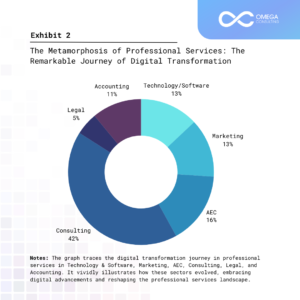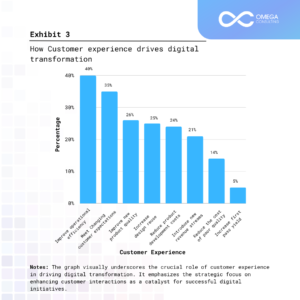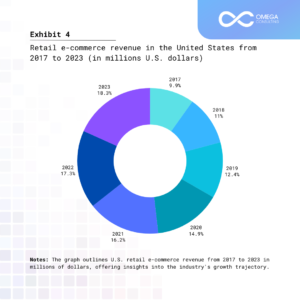- Industries
Industries
- Functions
Functions
- Insights
Insights
- Careers
Careers
- About Us
- Information Technology
- By Omega Team

In the fast-paced world of today, businesses face a changing landscape marked by technological leaps, evolving customer desires, and unpredictable market conditions. The need to adapt, innovate, and transform is no longer a choice; it’s an essential path to success. This article explores the crucial drivers of business transformation and why they are vital for the health and longevity of organizations in our ever-shifting business environment.

Technological Progress
Among the foremost drivers of business transformation is technology. Innovations like artificial intelligence, cloud computing, automation, and data analytics are revolutionizing how companies operate. Businesses that embrace these technologies gain a significant competitive advantage. They streamline processes, enhance decision-making, and create novel ways to provide products and services. In today’s digital-first world, keeping pace with technological trends is vital for business growth.
Customer Outlook Adjustments
Customer expectations have been transformed by the digital age. Today’s consumers demand seamless, personalized experiences, instant responses, and a robust online presence from the companies they engage with. Business transformation involves grasping these changing expectations and adjusting products and services to meet them. Companies that prioritize customer-centric strategies are better positioned to succeed in today’s market.

Regulatory and Adherence Challenges
Regulatory frameworks and compliance standards are in constant flux. Sectors like finance, healthcare, and data protection face particularly rigorous regulatory environments. Companies must ensure compliance with these ever-evolving standards to prevent legal complications, financial penalties, and reputational harm. Adhering to regulations often necessitates substantial changes in business processes and practices.

Worldwide Expansion and Market Penetration
The global market offers both opportunities and challenges. Companies aspiring to grow often need to expand into new markets, navigate different regulatory landscapes, and adapt to diverse consumer preferences. Globalization, and the ability to tap into international opportunities, is a significant forces behind business transformation. Adapting to these complexities often requires strategic, operational, and supply chain adjustments.

Competing Forces
Fierce competition characterizes nearly every industry. Businesses must continuously innovate to maintain their market share and outperform rivals. Companies that embrace transformation by investing in research and development, refining their product offerings, and exploring new markets are more likely to remain competitive and ensure their long-term success.
Economic and Market Dynamics
Economic conditions and market dynamics can prompt businesses to transform. Periods of economic uncertainty, like the global financial crisis of 2008 or the challenges brought on by the COVID-19 pandemic, have pushed companies to reevaluate their strategies, reduce costs, and adapt to new market realities. External pressures can serve as a catalyst for significant organizational change.

Workforce Transition and Cultural Progress
Adapting to the evolving workforce landscape and nurturing a culture of innovation and adaptability is another powerful driver of business transformation. With remote work, the gig economy, and evolving employee expectations becoming the norm, businesses need to stay agile and responsive. Employee engagement and empowerment are pivotal for effecting cultural change and ensuring the success of transformation initiatives.
Ecological and Sustainability Issues
Sustainability and environmental awareness have gained prominence in recent years. Consumers and investors are increasingly demanding eco-friendly practices. Companies that prioritize sustainability contribute not only to a cleaner planet but also to an enhanced brand image and a broader customer base. Sustainability can drive transformation in product design, supply chain management, and waste reduction.
Conclusion
In conclusion, the drivers of business transformation are fundamental in the modern business landscape. Companies that recognize and act on these drivers position themselves for success, adapt to change, and remain competitive. Embracing these forces is essential for business growth, adaptability, and long-term sustainability. In a rapidly changing business landscape, understanding and responding to the drivers of business transformation is no longer optional; it’s essential. Whether it’s harnessing the power of technology, meeting evolving customer expectations, expanding into global markets, or staying compliant with ever-changing regulations, businesses must be agile and proactive. Embracing these drivers not only ensures an organization’s survival but positions it for growth and long-term success. To thrive in the modern business world, recognizing the significance of transformation and making it a fundamental part of the strategic vision is paramount.
Join the Business Transformation conversation by viewing a brief segment our Webinar.
Subscribe
Select topics and stay current with our latest insights
- Functions